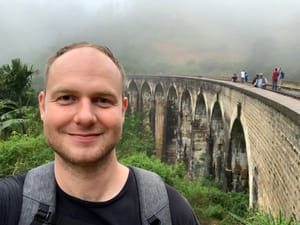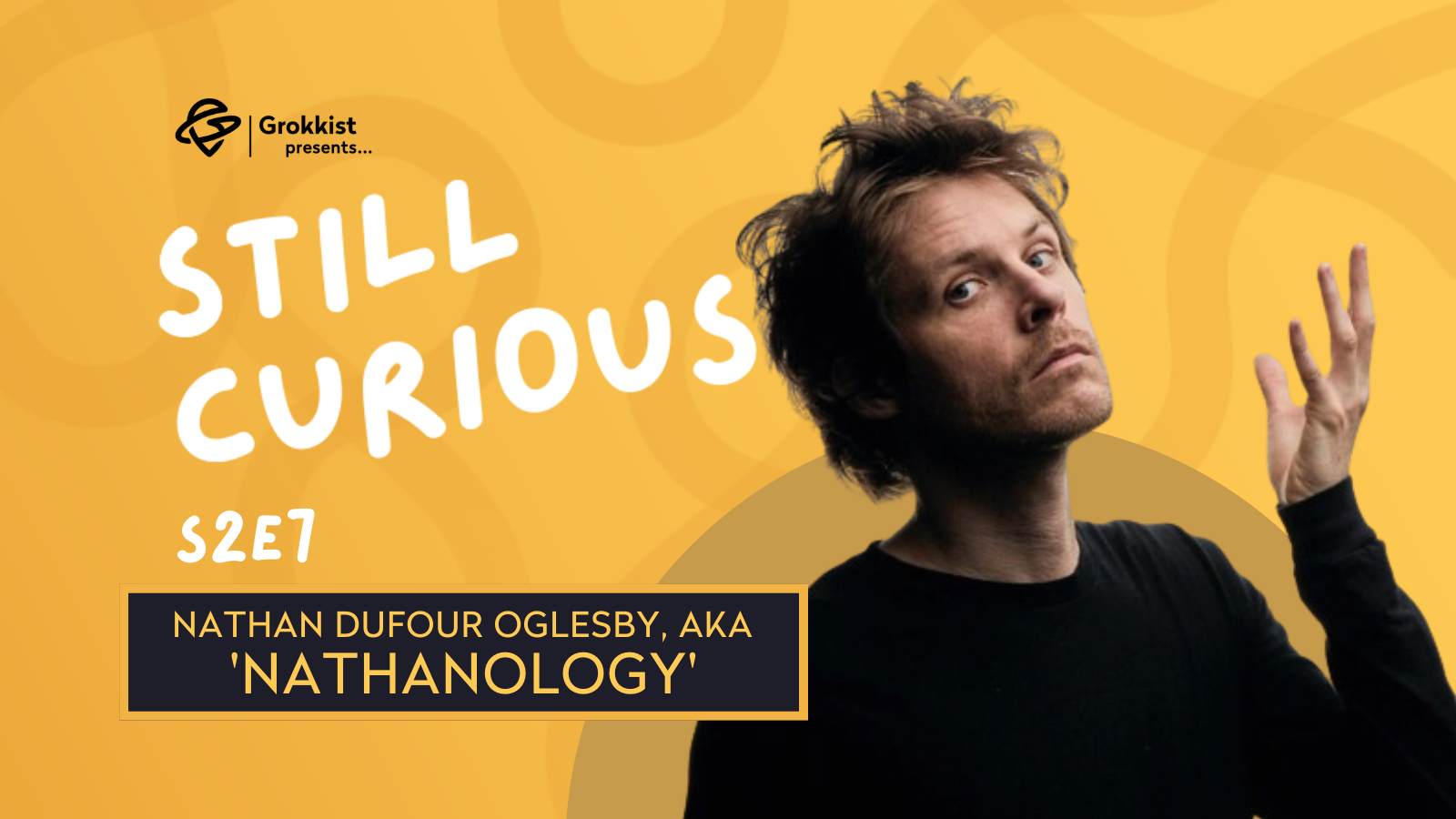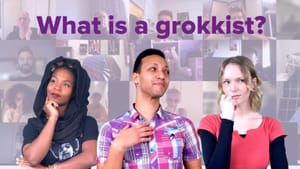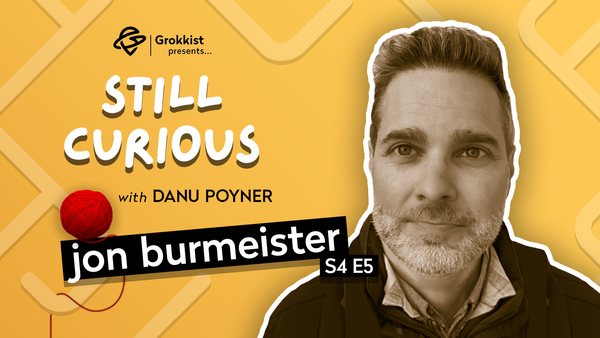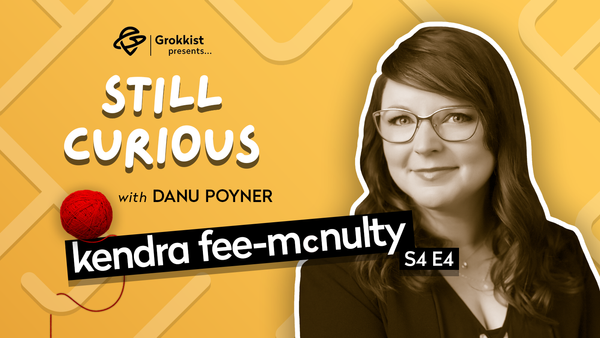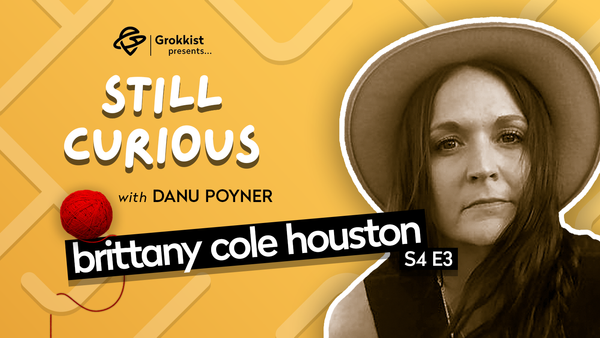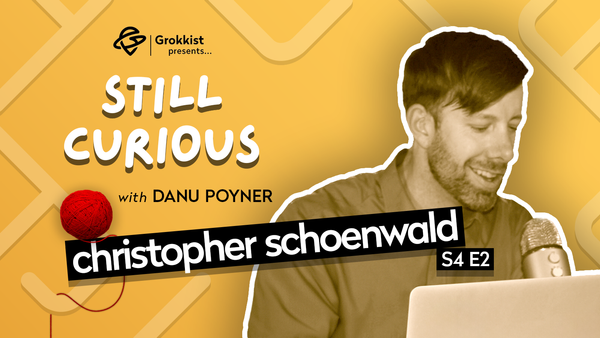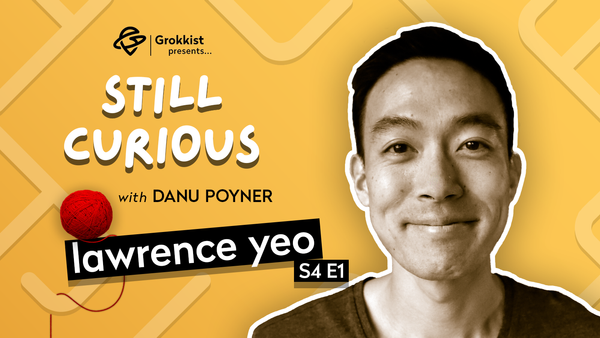Listen Now
About the Episode
Key Topics
What's involved in being an artist, academic and activist on YouTube and TikTok. Musical influences from Bob Dylan to Public Enemy. Why make songs and videos about the history of words and ideas? Getting naughty for nature. Performing rap on tap. Teaching as performance. Meditations on the self and social media. BONUS: Nathan and Danu collaborate on a song about the history of school.
Recorded 25 March 2022
Episode Digest
Nathan's squiggly career
- Nathan's Plan A has always been to succeed as an artist and or writer. "It's all I've ever cared about. That's been the altar on which I've sacrificed everything in terms of life. I don't say that to be dramatic, I just mean it's always mattered more to me than happiness, you know?"
- Nathan got into hip hop when he was in high school, by which time he was already into folk music. "I was fascinated by musics that were formally simple and direct and ideologically complex and rich and didactic in some way. The role of dense and extended information transmission that can be played by a song or by a singer or a rapper or whatever just always fascinated me. I was really into Bob Dylan. I was really into Public Enemy."
- Long before he could write songs myself, Nathan had an elaborate fantasy world of musicians that don't exist – a parallel universe of pop stars and rock stars and rappers, where he would sometimes write the lyrics of the songs that those artists made, "like a Tolkien sort of legendarium, a history that wasn't real."
- The first band Nathan was in was a punk band. "Not really a punk band in the typical sense, but in the sense that we weren't gifted at our instruments."
- The earliest song Nathan can remember making was a didactic song about making bread. "I thought it was funny to have a rap song about making bread because bread is like you're making money, but then it was literally going to be instructions for making a sourdough loaf."
- "My love for books was initially the beat writers and Kerouac and Ginsberg and stuff like that. But then I wanted to understand every reference they made. And then that led to wanting to read all the books that there was."
- At age 24, Nathan began teaching undergrads at City College and Hunter College, which are both within the City University of New York system. A lot of his students were the same age or just a little younger. "I was a very poor student. Not because I wasn't interested in the information, but because I rejected the institutional modality that I found myself in. The teachers that I connected with were some of the most important people in my life. They were like, okay, I recognize that your intellectual commitment here is sincere and vivid and vigorous, and we're going to reward that." In his students, Nathan saw a mirror of himself when he was in high school.
- "The teaching was supposed to be temporary while I got the art off the ground. But I really loved the teaching and I could sense that I was really good at it. So it turned out that the solution was a synthesis and the synthesis happened of its own accord."
- Nathan formed a deep and enduring collaboration with Hila the Killer. "There's just a lot of possibilities that open up when you're making a song with someone else, because you can start to embody different roles. We can go back and forth. She also is a very gifted conceiver of ideas. She actually more probably than anybody else, was the person that drew me into environmental and ecological thinking as the cornerstone of what I care about. I'd been on my way to that philosophically for a while, I was really into different natural theologies and natural philosophies and thinking about the identity of nature and our relationship with nature on an abstract level. But she got me into it on a tangible, literally grounded level."
- Nate and Hila started making songs about environmental topics together, including an album called Naughty for Nature about how different creatures have sex with one another. "That was born out of the collaboration we have with a venue in Brooklyn called House of Yes. As sexual politics and gender identity become increasingly central to the ideological crises and transformations we're going through, it seemed good to messy up the conversation. It's interesting in and of itself, and because the more you understand how other creatures operate, the more you have a capacity to care for the ecosystems of which you're a part."
- Nathan never aspired to be a video artist as such. "I've sort of gradually stumbled into making this career out of rapping about philosophy and science." When the pandemic happened, performance opportunities dried up completely and he started making a lot of videos. "It became the main sort of occupation. I was doing it a little bit before then, but I just very much realized that that was the mode of transmission. It's a very total art form."
- He was both inspired and intimidated when he discovered an organisation called Event Rap, started by an artist named Baba Brinkman. "At first I was like shit, somebody beat me to it. Because Baba is a true master of language. He has just done so much music about specifically ideas from science as they pertain to ecological matters. He's really just done a beautiful job with it. I was initially intimidated, and then I got over that and I reached out to him and got to know him, and we became friends." With the trail Baba had begun to blaze with Event Rap, Nathan was excited that "we're able to craft these things, aggregated it all into a system and develop the kind of theory behind it and even develop the kind of terminology for the different types of creative procedures."
- Nathan is deeply influenced by William Blake. "We remember him as a poet and that perhaps was his most distinct gift. However, he thought of himself as principally a visual artist and he made these illuminated books where he would make engravings and then print his own little books. His poems were meant to be viewed as these art books essentially, and read and sung in that context and experience in that context. And he made it all himself. He was like a one man factory and he really never succeeded during his life. So whenever I'm worried I haven't blown up yet, it's like, well it worked out for Blake."
- One of Nathan's videos eventually went viral. "It was quite surprising to me when that song (Critical Theory) spread around for two reasons. One, because it was almost a year after I'd released it. It didn't really go anywhere. But then I converted it to vertical for TikTok. That platform has really been proven to be the gateway now for expanding audience, but then also evolving my process in such a way where I'm getting suggestions from the audience and having that shape what my next moves are in terms of what I want to discuss."
- "I do think I did a good job on the critical theory video. It expresses the idea and it's a good song. But the main reason I like it is not because of the topic at all, it's because of the musical style. Hip-hop runs deep in me, but even deeper run folk music. That's an earlier love and deeper in the DNA structure of my selfhood. And in that one, it's a folky song. You don't listen to it and think this guy's a rapper. You think this guy has given me this music. It is just bardic, it's folk music and hip hop at once. I have more songs like that that are underway. And there's some songs on an upcoming album that'll sound like that. Those are the ones that I want to listen to the most.
Stuff We Mentioned
Organisations
Video
- Die for that pussy (Honeybee Sex) music video
- Old School School music video
Articles
- Billboard interview on the album Naughty for Nature
- BBC article on the history of 'meta'
- Meditation Mag article on social media and the self
Audio Highlights
Episode appetiser - Before there was writing, there was literature (23 sec)
The most important thing to understand about what Nathan does (32 sec)
Nathan explains the goal of his videos and the influence of William Blake (58 sec)
The life changing learning experience Nathan would gift someone (59 sec)
Nathan's Plan A (24 sec)
About Nathan Dufour Oglesby
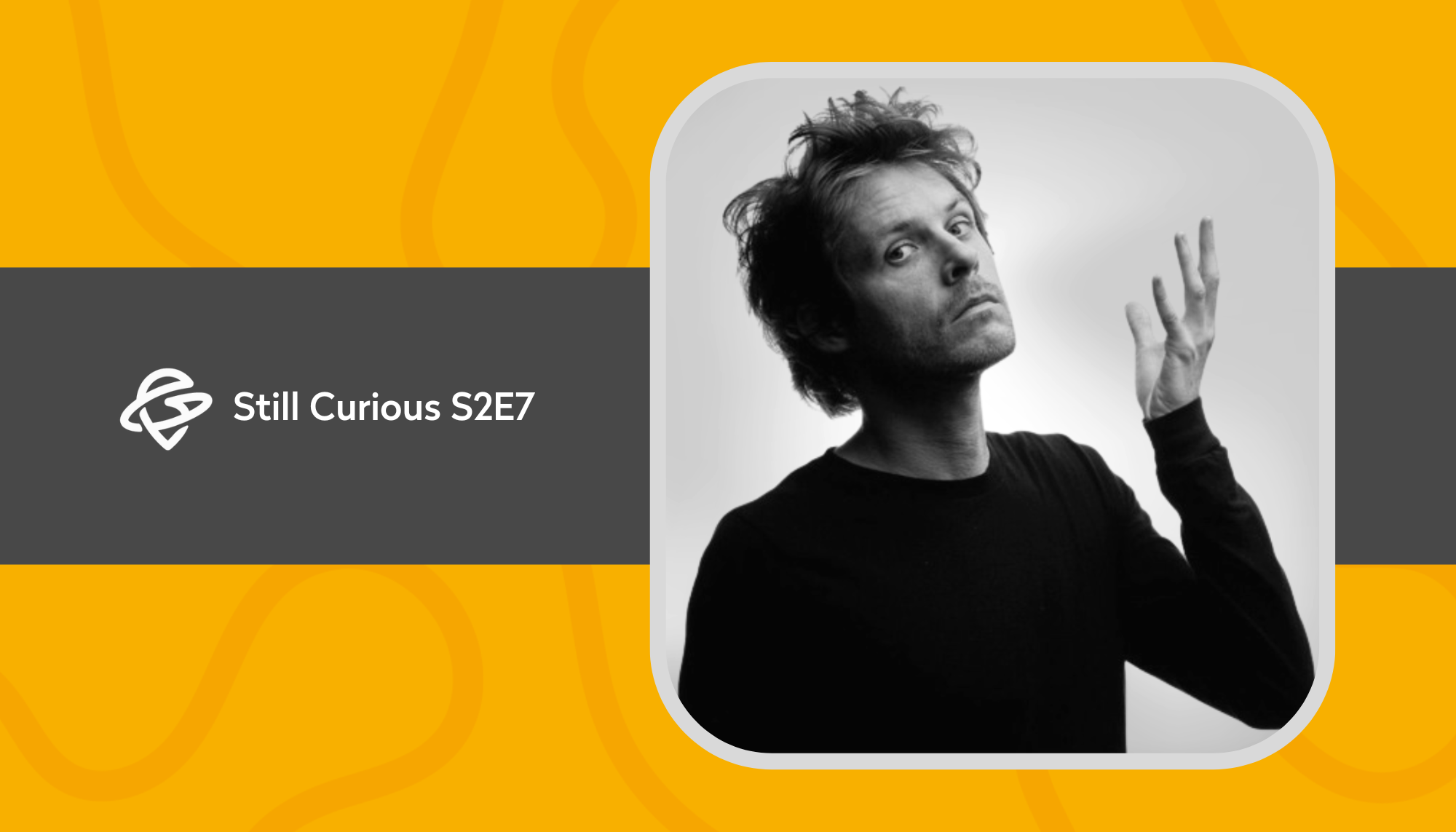
Connect with Nathan
YouTube | TikTok | Spotify | LinkTree
Interactive Transcript
Note: This is a machine-generated transcript and may contain errors.

